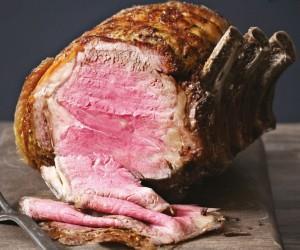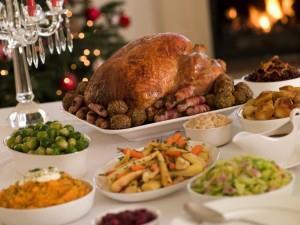Christmas meat sales for 2016 offered up some promising results for many butchers up and down the country, as well as the major retailers.
Roger Kelsey, the National Federation of Meat and Food Traders’ chief executive, told Meat Management: “Christmas trade was very good with sales around the same as last year. Beef sales as usual were very good, particularly amongst butchers that age beef on the bone. Meanwhile fresh turkey sales, whole or portioned, were as expected and at about the same level as 2015.”

The Q Guild’s north east region and national vice-chairman, David Lishman of Lishman’s Butchers in Ilkley, also reported that many members in the region experienced sales similar to 2015 figures, however also said that some company’s achieved an increase in turnover and customer orders. For example one member saw an increase of 15.8% in sales, while others saw between a 2% and 10% rise.
Individual highlights from other independent butcher shops across the country included, Aubrey Allen, winner of Britain’s Best Butcher’s Shop 2016, which saw sales increase by over 15% over the Christmas period from 2015, and the Ginger Pig in London, which saw its Christmas orders (excluding till takings) increase by 26% compared to 2015.
“Following a successful Christmas launch at the end of November and a social media campaign to follow this up we are delighted that sales have increased in excess of 15% on last year,” Lucianne Allen, sales and marketing director at Aubrey Allen, commented.
“Meat sales remain traditional with turkey and cockerel the favourites. However, there was also demand for gluten free sausages, stuffed turkey breasts, free range ducks and game birds. The traditional grass fed beef joint, a ham and a pork pie were still very much on the list as well,” Allen added.

Trends
One particular trend noticed by butchers including Lishman’s as well as Bolton-based Fraser’s Butchers was the rise in popularity of the boneless turkey breast in place of whole turkey.
Andy Hull of Fraser's Butchers commented: “We had a great few weeks of business over the festive season. We have noticed there is an ever increasing trend for boneless turkey breast butterflies in place of whole turkeys.
“We would also say that lots of people this year had two or three roasts with their dinners, buying turkey, beef and ham at once,” Hull added.
Beyond the main centrepiece of the dinner table, Fraser’s also experienced strong demand for its ready-made pigs in blankets as well as its homemade pork pies, which sold 3,000 throughout December.
Lishman’s also noticed a rise in smaller ‘add on’ products being purchased. Lishman explained: “The customer basket size and the number of products sold to each client appeared to be higher this year with more sales of smaller ‘add on’ goods such as pigs in blankets, sausage meat stuffing and buffet type food, including pork pies and charcuterie.”
Multiple retailers

Meanwhile the supermarkets also benefited over the Christmas period with figures from Kantar Worldpanel for the 12 weeks ending 1st January 2017 showing the fastest recorded growth since 2014, as a result of additional consumer spend of approximately half a billion pounds increasing total supermarket sales by 1.8%.
The big four supermarkets together accounted for 71.4% of market share, with a sales increase of 0.1% – the first time that all four have collectively grown since June 2014.
Notable successes for the retailers were premium own label brands, particularly cooked meats such as ham.
Fraser McKevitt, head of retail and consumer insight at Kantar Worldpanel, said: “Thanks to continued investment in premium own label brands across the major retailers in 2016, such products finished the year with record 12 week sales of almost one billion pounds.”
Tesco’s recent sales revival continued with an increase of 1.3% particularly helped by its performance within fresh food.
Also increasing sales after a successful end to 2016 were Iceland, where sales grew by 9.6%, Waitrose (3.0%) and Co-op (2.4%).
Sainsbury’s saw a marginal sales decline of 0.1%, though it did deliver strong online sales growth.
McKevitt said the discounters tend to take a slightly smaller share of the market in December than the rest of the year as consumers revert to traditional retailers for the holiday season.
McKevitt concluded: “Sales were buoyed by strong consumer appetite for festive celebration after a turbulent year.”
This story was originally published on a previous version of the Meat Management website and so there may be some missing images and formatting issues.















